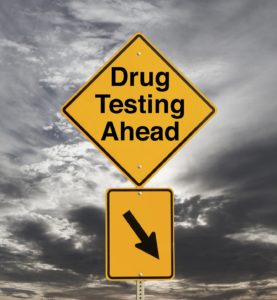
Two years ago, I discussed difficulties that could be caused by new OSHA regulations on post-accident drug testing. Here’s a link to that article: Conflicts Between Alabama Law and OSHA Drug Testing Rules. In that article, I noted that OSHA took the position that policies requiring “blanket post-injury drug testing policies deter proper reporting,” and are unreasonable. Last week, OSHA issued a “clarification” of its position, and alleviated many of the concerns noted in my original article. Here’s a link to the clarification: OSHA Clarification on Post-Incident Drug Testing. In contrast to 2016, OSHA now recognizes the importance of blanket post-injury drug testing:
The Department believes that many employers who implement safety incentive programs and/or conduct post-incident drug testing do so to promote workplace safety and health. In addition, evidence that the employer consistently enforces legitimate work rules (whether or not an injury or illness is reported) would demonstrate that the employer is serious about creating a culture of safety, not just the appearance of reducing rates. Action taken under a safety incentive program or post-incident drug testing policy would only violate 29 C.F.R. § 1904.35(b)(1)(iv) if the employer took the action to penalize an employee for reporting a work-related injury or illness rather than for the legitimate purpose of promoting workplace safety and health.
So, if an employer drug tests in order to penalize an employee, then the drug test is questionable and might result in sanctions from OSHA. Otherwise, post-accident drug testing policies are permissible. Indeed, OSHA specifically found that the following are “permissible”:
- Random drug testing.
- Drug testing unrelated to the reporting of a work-related injury or illness.
- Drug testing under a state workers’ compensation law.
- Drug testing under other federal law, such as a U.S. Department of Transportation rule.
- Drug testing to evaluate the root cause of a workplace incident that harmed or could have harmed employees. If the employer chooses to use drug testing to investigate the incident, the employer should test all employees whose conduct could have contributed to the incident, not just employees who reported injuries.
OSHA’s clarification is very helpful for Alabama employers. OSHA’s position in 2016 conflicted with the Alabama Drug Free Workplace Act, which incentivizes employers to adopt post-accident testing policies. Now OSHA has changed course, and there is little danger to employers who adopt such policies.